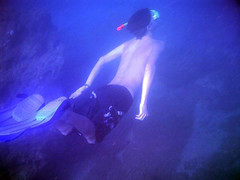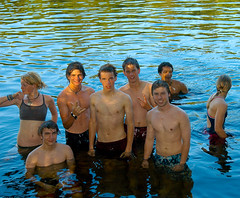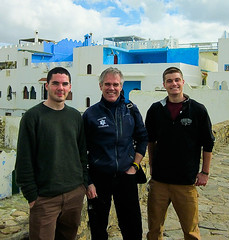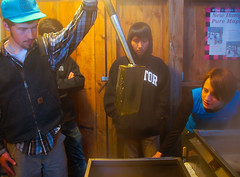Much of my career at Proctor was admission work (from 1983-1997.) That business has changed dramatically over the years! Schools still invest in catalogs to be snail mailed in response to telephone "inquiries," but electronic media are supplanting view books with searchable websites, interactive blogs and instantly accessible, topical videos.

One healthy outcome of web communication is unprecedented transparency. A school's marketing team may try to "spin" messaging by over-representing the same old themes: academic excellence, faculty-student relationships, dynamic teaching, male/female ratios, etc., but the motivated consumer (in the eighth grade) can navigate through any smoke screen and experience the school's realities. She can find pertinent data, identify programs and--if the school embraces authenticity--engage in conversation with students, teachers, graduates and parents.

This loss of institutional control is exhilarating for honest communities and healthy schools, and it is terrifying for those invested in traditional, manipulative marketing.

The ability to access great quantities of valuable information has established new standards for prospective students and their families. As our Director of Admission, Chris Bartlett observes, "They expect to know more than ever before, and by the time they arrive on campus for an admission visit, they already know much more than before." They have listened to assembly podcasts, viewed videos from Polar Swim and are ready to taste Edna's cookies.

All of this facilitates and advances more appropriate match-making. More visiting applicants are admissible, not just because
we found
them, but because
they found
us. Now, consider another technological breakthrough. A kid in London or Des Moines wants to attend a college prep school that offers state-of-the-art recording (studio) program and kayaking. Or boat building and wildlife sciences. Or Advanced Placement Environmental Science and ski jumping. She brings up a search engine on her laptop, and what happens?

You guessed it. Schools that have highly developed programs and services (including relatively idiosyncratic offerings like metalshop, land use management, Ocean Classroom, language abroad, Costa Rica, etc.,) are magnets for kids with highly developed interests, skills and passions.



While I make this sound like a dream-come-true for Proctor, the truth is that adjusting to these new realities can be challenging. This spring, we assumed that the percentage of those offered admission who would choose to attend Proctor would be true to the "yield" in past years. That was a mistake; it was significantly higher. The harsh reality today is that we are
over-enrolled by approximately ten boarding students for the 2011-12 school year. An administrative team is studying novel housing options that may include shuttling students to and from campus to housing beyond walking distance. It is ironic that demand for this school's unique mix of programs, services and ethos has resulted in a housing headache that may require some hardship and plenty of understanding.







































